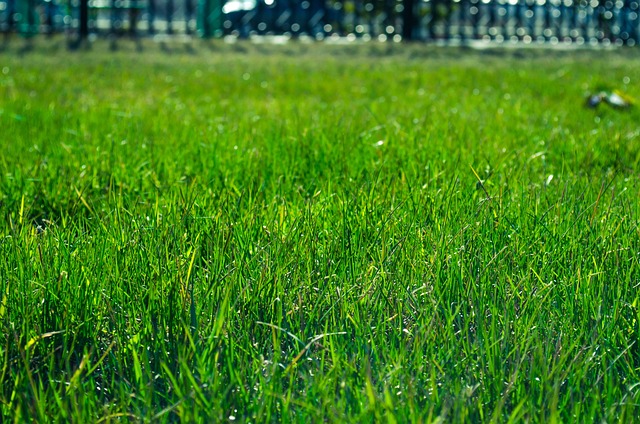Homeowners increasingly adopt sustainable backyard practices to minimize environmental impact. Eco-friendly landscaping includes green backyard ideas like native plant landscaping, drought-tolerant gardening, permaculture design, and backyard composting. These methods reduce water usage, enrich soil health, attract wildlife, and create low-maintenance outdoor spaces that thrive in today's climate. By implementing water-efficient strategies, such as rain collection systems, and incorporating sustainable garden design principles, homeowners can transform their backyards into vibrant oases that benefit both the planet and personal enjoyment.
Transform your backyard into a thriving, sustainable oasis with the power of renewable resources. In today’s world, embracing eco-friendly practices is not just a trend but a crucial step towards a greener future. This article explores the shift to sustainable backyard landscaping and provides an extensive guide to creating a harmonious, beautiful, and environmentally conscious outdoor space. Discover innovative ideas like native plant landscaping, drought-tolerant choices, permaculture design, and more, as we navigate towards a greener world, one backyard at a time.
The Shift to Sustainable Backyard Landscaping
In recent years, there’s been a growing trend among homeowners to embrace sustainable and eco-friendly practices in their backyard landscaping. This shift is driven by a desire to minimize environmental impact, conserve natural resources, and contribute to a greener planet. Traditional landscaping often relies on water-intensive plants, synthetic materials, and non-native species, all of which can strain local ecosystems and contribute to climate change. However, the rise of green backyard ideas emphasizes using renewable resources and embracing nature’s beauty in a more responsible manner.
This movement towards sustainable garden design incorporates various practices such as native plant landscaping, drought-tolerant gardening, permaculture design, and even backyard composting. Native plants, for instance, require less water and provide essential habitats for local wildlife. Drought-tolerant landscaping reduces the need for frequent irrigation, while permaculture design focuses on creating self-sustaining ecosystems that mimic natural processes. Composting not only reduces organic waste but also enriches soil health, promoting lush plant growth with minimal external inputs. These water-efficient backyard solutions not only save resources but also create beautiful, low-maintenance outdoor spaces that thrive in today’s changing climate.
– Exploring the Benefits of Eco-Friendly Practices
Incorporating eco-friendly practices into your backyard landscape offers a plethora of benefits for both your outdoor space and the environment. One of the key advantages is promoting sustainability by reducing your carbon footprint and conserving natural resources, especially water. Native plant landscaping, for instance, not only supports local ecosystems but also minimizes the need for excessive irrigation, making it an excellent choice for drought-tolerant gardens. These plants are adapted to the region’s climate, ensuring a vibrant and low-maintenance yard.
Additionally, green backyard ideas such as permaculture design encourage a holistic approach to landscaping. By mimicking natural ecosystems, you create diverse habitats that support beneficial insects, birds, and other wildlife. This organic method also promotes soil health through composting, which enriches the ground and reduces the need for synthetic fertilizers. A sustainable garden design not only contributes to ecological preservation but also provides a peaceful, aesthetically pleasing space while promoting a greener, more sustainable lifestyle.
– The Rise of Green Spaces in Urban Areas
In recent years, there’s been a noticeable shift towards integrating green spaces in urban areas, driven by a growing awareness of environmental sustainability and the need for eco-friendly solutions. This trend extends beyond public parks; homeowners are increasingly embracing the concept of sustainable backyard landscaping. By adopting green backyard ideas, such as native plant landscaping and drought-tolerant strategies, individuals contribute to both local ecosystems’ preservation and global environmental efforts.
The move towards eco-friendly landscaping isn’t just about aesthetics; it’s a sustainable garden design philosophy that encompasses various practices like backyard composting for organic waste reduction and permaculture principles for creating resilient, self-sustaining systems. These approaches not only conserve water but also provide habitats for local wildlife, making urban backyards into vibrant oases within the concrete jungle.
Designing Your Dream Green Backyard
Designing a dream green backyard is an exciting way to merge your love for nature with sustainable living. Eco-friendly landscaping offers a creative platform to transform your outdoor space into a vibrant oasis while minimizing environmental impact. Incorporate native plant landscaping, a key aspect of sustainable garden design, to attract local wildlife and reduce water usage. These plants are adapted to the region’s climate, requiring less irrigation, which is perfect for drought-tolerant landscaping.
Permaculture design principles can guide your vision, emphasizing holistic planning. Consider setting up a backyard composting system to recycle kitchen scraps and yard waste, reducing waste and enhancing soil fertility naturally. A water-efficient backyard features rain collection systems and smart sprinkler setups, ensuring your garden thrives without excessive watering. These green backyard ideas not only contribute to a healthier planet but also create an aesthetically pleasing and peaceful retreat right in your own backyard.
The shift towards sustainable backyard landscaping is not just a trend but a necessary step towards a greener future. By adopting eco-friendly practices, such as using native plants, implementing drought-tolerant designs, and practicing permaculture, homeowners can create stunning outdoor spaces that benefit both the environment and their communities. Incorporating green backyard ideas, like composting, allows for a circular economy, reducing waste and enhancing soil fertility. With these simple yet powerful changes, everyone can contribute to a vibrant tapestry of sustainable gardens, making urban areas more livable and resilient.
